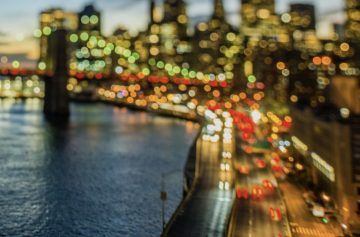Humera Afridi in Lit Hub:
 In this half-life of quarantine, danger lurks in the unlikeliest of places: the touch of an elevator button, a store-bought carton of milk, my son’s sneeze. Insidious and cunning, death is everywhere around us.
In this half-life of quarantine, danger lurks in the unlikeliest of places: the touch of an elevator button, a store-bought carton of milk, my son’s sneeze. Insidious and cunning, death is everywhere around us.
I pattern sedulous days at home with occasional walks around the neighborhood, along silent streets trailing westward to the Hudson River. Solitary walks, for the most part, because the locked playgrounds and confiscated basketball hoops stir a sense of horror in my 12-year-old. My lung hurts, he says, panicked and teary, feeling the city’s pain as his own one afternoon days before his 13th birthday, when I drag him out to get some air. This is too depressing, he mopes. I just want to stay inside. All but two of his friends have left the city to shelter upstate, with room to roam in isolation and scamper unfettered amid the changing foliage. In times of disaster, fissures are stark, the lines of difference indubitable. He sulks, alternating between The Office and All American for relief. Grateful he’s engrossed in narrative and not a video game, I bite my tongue and indulge the screen time.
Waiting for New York City to reach the “apex” of the health crisis, we are held in a kind of limbo or “barzakh”—an interval between spheres of existence, as Ibn Arabi, the 13th-century Sufi mystic and poet, described. Barzakh is how I think of our suspension, the stasis between our lives before quarantine and the as yet unknown life to come after it’s lifted.
More here.
